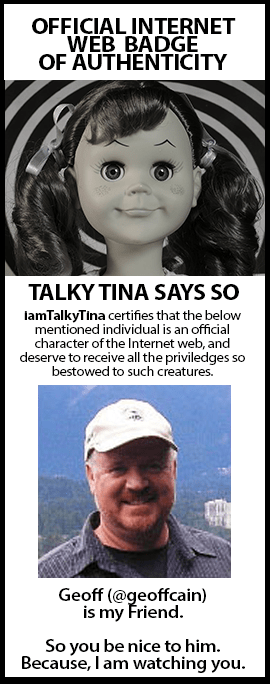 Image via WikipediaAn “OER” is an open education resource and the most common example is an open textbook. An open textbook is a book, most often electronic, that is licensed in a way that allows re-use, repurposing, editing, and republishing. One of the main advantages in an open textbook, apart from the fact that they are free, is that open textbooks can be edited by the instructor. Some “open” textbooks managed by commercial publishers may not be editable at the sentence level. One of the criticisms leveled at open textbooks is that the quality somehow suffers because they do not have the “imprimatur” of the commercial publishers. Even some advocates of open textbooks believe this myth.
Image via WikipediaAn “OER” is an open education resource and the most common example is an open textbook. An open textbook is a book, most often electronic, that is licensed in a way that allows re-use, repurposing, editing, and republishing. One of the main advantages in an open textbook, apart from the fact that they are free, is that open textbooks can be edited by the instructor. Some “open” textbooks managed by commercial publishers may not be editable at the sentence level. One of the criticisms leveled at open textbooks is that the quality somehow suffers because they do not have the “imprimatur” of the commercial publishers. Even some advocates of open textbooks believe this myth.
According to the Educause article “7 Things You Should Know About Open Textbooks,” “The traditional publishing model features robust editorial..mechanisms designed to ensure the quality…of printed textbooks.” In my experience as a former manager for a commercial textbook publisher, their motivation was to bring a textbook to the market as quickly as possible, not ensure the quality. The authors go on to say “an open textbook may seem to be missing an essential credential that speaks to its validity.” This is a more accurate statement because this is about perception, not reality. There is a presumption that a textbook that was not vetted by a project manager at a business conglomerate must have quality and reliability issues. Those who are arguing this do not understand the commercial textbook industry. Textbook publishers don’t always get it right, and often, textbooks are bought by school districts and colleges departments without being reviewed carefully because buyers assume that commercial publishers are careful. Why else would they be so expensive? Here are a few glaring examples (of many) where they were not careful:
- Historians find myriad errors in VA textbooks
- The Great American Textbook Scandal
- Textbooks flunk out
- Science textbooks not always by the book
- Big blunders found in school textbooks
I will let these examples suffice for now. You can go to Google yourself and search for “textbook errors” and find many more examples. In that search, I also found articles about how to turn textbook errors into “teachable moments.” How sad is that? Why would we accept these textbooks? How helpless are we that we are content with these errors? The traditional publishing cycle of commercial textbooks means that it can take two years before a corrected commercial textbook makes it back to the “customer” (that is our students). Texas has talked about fining publishers for each error – now there is a teachable moment!
How did we get here? Getting back to the Educause article which says that reliability issues in open texts “places an extra burden on the instructor to ensure an open text is complete, accurate, and appropriate for the student needs.” This should be the work of all instructors and administrators no matter what the licensing looks like.
But the solution can only come from open texts: an instructor or department cannot correct a commercial text, cannot add to it, or adapt the materials to the specific needs of the local student population. That can only be done with texts that are open licensed. With an open textbook, any errors can be corrected as they are found.
Lets do our job as educators and not rely on commercial businesses to teach our students. We should be engaged in the curriculum at all stages and not hold open texts to a higher standard than commercial textbooks. Instructors and academic departments should partner to author, revise, adapt, and vet course materials. We should be partnering with other institutions to support these efforts – a textbook should include a network of subject matter experts, expert practitioners in the field, and advanced students.
Besides all of that, a textbook is not a course. It is a single tool, a reference point. A textbook is not teaching. If the answers to your questions can be found in a textbook, you are not asking the right questions.
Related articles
- 1 in 4 College Textbooks Will Be Digital By 2015 (nytimes.com)
- Open Source: The Textbooks of the Future (blogs.sitepoint.com)
- What *is* “Open”? (elearningcentralia.wordpress.com)
- $2billion for OERs could end the textbook industry as we know it… (downes.ca)





